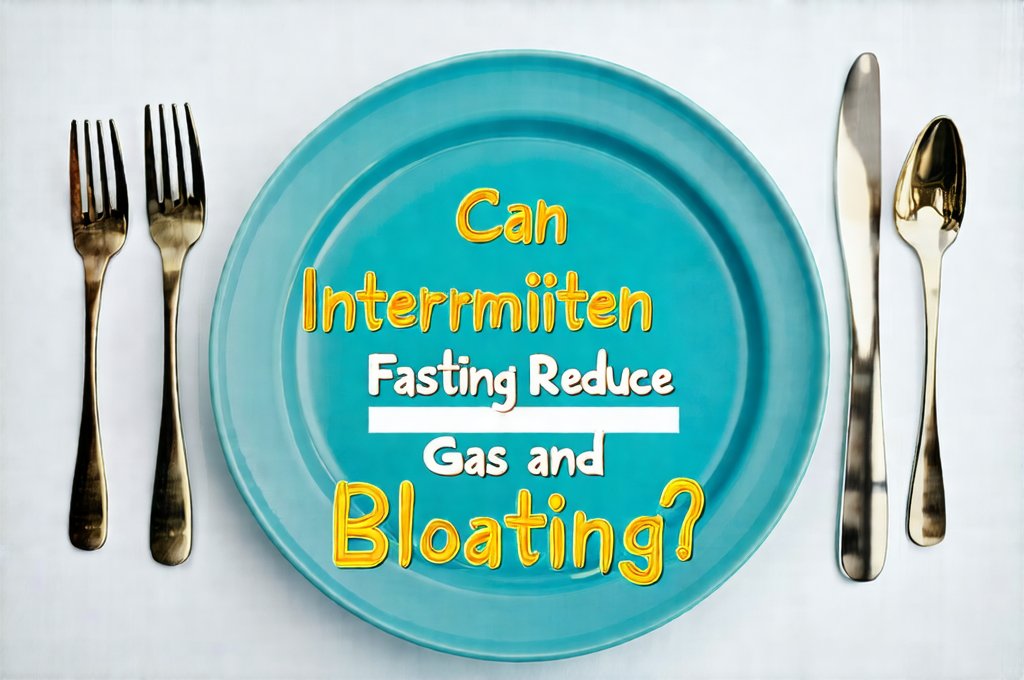Gas and bloating are incredibly common digestive complaints affecting a significant portion of the population. These uncomfortable symptoms can range from mild annoyance to debilitating discomfort, impacting daily life and overall wellbeing. Often triggered by diet, food sensitivities, stress, or underlying gastrointestinal conditions, understanding the root cause is crucial for effective management. Many individuals seek relief through dietary changes, over-the-counter remedies, or lifestyle adjustments. Increasingly, intermittent fasting (IF) is being explored as a potential strategy to alleviate these frustrating symptoms, not necessarily as a cure-all, but as a way to modify digestive processes and potentially reduce the production of gas and bloating.
While often associated with weight loss, intermittent fasting encompasses various eating patterns that cycle between periods of voluntary fasting and non-fasting on a regular schedule. The appeal lies in its flexibility and potential benefits beyond just weight management, including improved metabolic health and even gut health – an area directly linked to digestive discomfort. This article will delve into the connection between intermittent fasting and gas/bloating, examining how it might offer relief and outlining considerations for those interested in exploring this approach. It’s important to remember that individual responses vary widely, and consulting with a healthcare professional is always recommended before making significant dietary changes.
Understanding Gas and Bloating: The Digestive Roots
Gas and bloating aren’t diseases themselves; they are symptoms of an underlying issue within the digestive system. Several factors can contribute, making it a complex puzzle to solve. One primary cause is the fermentation of undigested carbohydrates in the large intestine. Our bodies don’t always fully break down certain carbs – particularly FODMAPs (Fermentable Oligosaccharides, Disaccharides, Monosaccharides and Polyols) found in foods like beans, onions, wheat, and some fruits. When these reach the colon, bacteria feast on them, producing gas as a byproduct. This is perfectly normal to a degree, but excessive fermentation leads to bloating and discomfort.
Another common culprit is swallowing excess air (aerophagia), which can happen while eating quickly, chewing gum, or drinking carbonated beverages. Food sensitivities and intolerances, like lactose intolerance or gluten sensitivity, also play a significant role. If your body lacks the enzymes needed to properly digest certain foods, it leads to malabsorption, triggering inflammation and gas production. Finally, underlying gastrointestinal conditions such as Irritable Bowel Syndrome (IBS), Small Intestinal Bacterial Overgrowth (SIBO), or celiac disease can significantly exacerbate these symptoms. Identifying your specific triggers is the first step towards effective management.
The gut microbiome – the vast community of bacteria residing in our digestive tract – profoundly impacts digestion and gas production. An imbalance in this microbial ecosystem, known as dysbiosis, can contribute to increased fermentation and bloating. Diet plays a crucial role in shaping the composition of the gut microbiome; therefore, dietary changes are often central to managing these symptoms.
Intermittent Fasting & Gut Health: A Potential Connection
Intermittent fasting doesn’t directly “cure” gas or bloating, but its effects on digestion and the gut microbiome may contribute to symptom reduction for some individuals. The periods of fasting allow the digestive system a break from constant processing, which can be beneficial in several ways. This “rest” period allows the migrating motor complex (MMC) – essentially the gut’s cleaning crew – to function more effectively. The MMC is responsible for sweeping undigested food and bacteria from the small intestine to prevent bacterial overgrowth. Continuous eating hinders its activity.
Furthermore, IF can influence the composition of the gut microbiome. Studies suggest that fasting may promote a more diverse and balanced microbial community. A healthier microbiome often means less fermentation of problematic carbohydrates and reduced gas production. Importantly, the type of intermittent fasting protocol used matters. More restrictive or prolonged fasts might actually increase stress on the digestive system for some individuals, potentially worsening symptoms. Therefore, starting with milder protocols and monitoring your body’s response is vital.
It’s also important to note that IF can impact gut motility – the speed at which food moves through the digestive tract. This can be a double-edged sword; slower motility may lead to increased fermentation, but faster motility might reduce the time for problematic carbs to ferment in the first place. The optimal balance varies from person to person, and careful observation is key.
Exploring Intermittent Fasting Protocols
There’s no one-size-fits-all approach to intermittent fasting. Several protocols exist, each with varying degrees of restriction and suitability:
- 16/8 Method: This is perhaps the most popular protocol, involving a 16-hour fasting window followed by an 8-hour eating window. For example, you might eat between noon and 8 pm and fast for the remaining hours. It’s relatively easy to integrate into daily life.
- 5:2 Diet: This involves eating normally for five days of the week and restricting calorie intake to around 500-600 calories on two non-consecutive days.
- Eat-Stop-Eat: This involves a 24-hour fast once or twice a week. It’s more challenging than other protocols and requires careful planning.
When considering IF for gas and bloating, the 16/8 method is often a good starting point due to its moderate restriction. Gradual implementation is crucial. Don’t suddenly jump into a restrictive protocol; start with shorter fasting windows and gradually increase them as tolerated. Pay close attention to how your body responds at each stage. Can regular fasting help reset digestive balance?
Dietary Considerations During Eating Windows
Intermittent fasting isn’t just about when you eat, but also what you eat during your eating window. Focusing on easily digestible foods can significantly minimize gas and bloating. Consider these strategies:
- Low-FODMAP Diet: Temporarily reducing or eliminating high-FODMAP foods can help identify trigger foods. This is often recommended for individuals with IBS.
- Prioritize Whole Foods: Focus on unprocessed foods like fruits, vegetables, lean proteins, and healthy fats. These are generally easier to digest than processed foods.
- Mindful Eating: Eat slowly, chew thoroughly, and avoid swallowing excess air. This improves digestion and reduces gas production.
- Hydration: Drink plenty of water throughout the day, especially during eating windows. Dehydration can contribute to constipation and bloating. Drinking water is important for digestion.
Monitoring Your Body & Seeking Professional Guidance
Intermittent fasting isn’t suitable for everyone. Individuals with certain medical conditions (e.g., diabetes, eating disorders, pregnancy) should avoid it without consulting a healthcare professional. Listen to your body is paramount. If you experience increased discomfort, fatigue, or other adverse effects, discontinue IF and consult with a doctor or registered dietitian.
Keep a detailed food diary and symptom log to track how different foods and fasting protocols affect your digestion. This will help identify triggers and refine your approach. A healthcare professional can provide personalized guidance based on your individual needs and health status. They can also rule out underlying medical conditions that may be contributing to your symptoms, ensuring you receive appropriate care. Does intermittent fasting help or harm GERD? Remember, intermittent fasting is a tool – not a magic bullet – and its effectiveness depends on careful implementation and mindful observation. Consider how yoga can reduce acid reflux symptoms too. Fasting helps reset digestive function, but it isn’t always the answer for everyone.


















